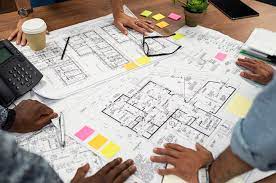In the fast-paced world of real property, property improvement ai has changed from a manual, labor-intensive procedure to one that is increasingly dependent on artificial intelligence (AI). This shift in technology is changing the way property owners, investors, and developers approach renovations and upgrades. Here’s an overview of the ways in which AI is making waves in the property improvement ai and what you should be aware of.
1. AI-Powered Design and Planning
AI is changing the way property design and planning, by providing sophisticated tools for designing and visualizing renovation projects. AI algorithms are able to analyze historic data and architectural plans to provide recommendations for improvements to design. Tools such as the virtual reality (VR) and AR, or augmented reality (AR) that are powered by AI allows users to test potential changes in real-time before committing to them. This helps in making better decisions but also aids in avoiding costly mistakes.
2. Smart Renovation Recommendations
AI-powered platforms can evaluate the condition of a home and recommend targeted improvements. Through the use of data from prior renovations, market trends, and the preferences of customers they can offer insights into which upgrades will yield the highest return on investment. For instance an AI system could suggest upgrading a bathroom or kitchen to boost the value of a home, in light of the market’s demand.
3. Predictive Maintenance
Maintaining a property requires anticipating and addressing problems before they turn into major problems. AI plays a crucial role in predictive maintenance by analyzing patterns and identifying potential issues. For example, AI systems can monitor HVAC systems plumbing, electrical, and infrastructure to predict failures and recommend preventive measures. This proactive approach assists in minimizing repair costs and prolonging the life of property components.
4. Cost Estimation and Budget Management
AI tools can reduce cost estimations by analyzing historical data, material prices, and labor costs. This can help property owners and developers to create more accurate budgets and avoid unexpected expenses. AI will also improve the procurement process, suggesting materials and suppliers that are cost effective according to the current market conditions.
5. Enhanced Project Management
managing projects for improvement of properties requires managing multiple tasks and stakeholders. AI helps improve project management by automating the scheduling as well as tracking progress as well as managing the resources. AI systems are also able to analyse project data to detect potential delays or issues and allow for quick intervention and adjustments.
6. Personalization and Customer Experience
AI can provide a more customized experience through analyzing preferences and behavior. For example AI-driven design tools can suggest home improvement ideas tailored to the individual’s tastes and demands. This improves the satisfaction of homeowners and guarantees that renovations are in line with the requirements of individual home owners.
Conclusion
AI fundamentally changes the property improvement landscape by creating processes that are more effective, efficient and user-friendly. From design and planning to maintenance and managing projects, AI tools are helping developers and property owners make better decisions and get better outcomes. As technology continues to advance, the role of AI in improving property is only going to grow in importance providing new opportunities and new possibilities for the real estate sector.
